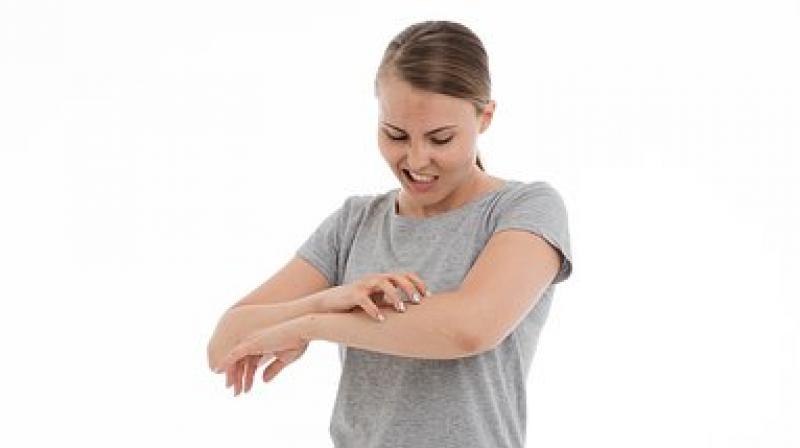This is what your itchy breasts are trying to convey
Two experts explain all you should know about scratchy breasts.

Do you feel the urge to scratch your breasts? Not just once, but probably all of the time? Apparently, you’re just one among the plethora of others who’ve probably Googled about itchy breasts. And, this growing search term makes up for more searches than a lot of other itchy parts. What’s that? Oh right, you’re probably feeling itchy now.
While it’s quite normal to feel the need to scratch most of the time, there are times when itchiness in breasts could probably be an underlying symptom of something bigger. Two experts, Dr Clare Morrison, GP & Medical Advisor at Medexpress and Dr Zoya Diwan, Medical Director and Founder of Trikwan help us understand all of it.
Are itchy breasts common?
“It's very common to get itchy breasts, as the skin here is sensitive, and breasts are exposed to a variety of potential triggers,” said Dr Clare. “These include sweat, friction, cyclical hormone changes, and bra-related problems, for example.”
"One of the most common causes is usually an external irritant such as a new body cream, material of a bra or a new body wash," added Dr Zoya. So, chances are that the body wash you bought for its amazing fragrance is the culprit.
Can different areas of itchiness indicate different causes?
“Like the rest of the body, the skin of the breasts is subject to any skin disorder, such as dryness, eczema (also known as dermatitis), psoriasis, allergies, insect bites and infections. Itchiness of the exposed parts of the breasts and upper chest can be caused by sunburn, and sun allergy. Itchiness of the nipples is often caused by chafing, aggravated by running for example. It is also common if the bra causes irritation, by being poorly fitted, or made from synthetic materials,” said Dr Clare.
“Breast-feeding is particularly hard on the nipples, due to moisture, friction, and sometimes infection. Itchiness between the breasts is commonly caused by excessive heat and sweating. This may lead to sweat rash, pimples, and (in more extreme cases) yeast infections. Underneath the breasts, the trapped moisture can encourage skin infections, which can be bacterial or fungal,” she added.
According to Glamour Magazine, a bra could again be the cause of it all. “This is because they obtain a lot of sweat and moisture which can leave the skin irritated," said Dr Zoya. She further explained that, "Dry weather can also cause itching all over your body, including on the breasts and nipples,” while, “itching under, between, or on your breasts without a rash could be caused by growing breasts."
If the itching is coupled with rashes, what does it indicate?
According to Claire, these can be the possibilities:
- Eczema (dermatitis).
- Psoriasis.
- Urticaria.
- Skin infection.
- Heat rash.
- Cancer.
And if there are no rashes?
In that case, Claire thinks these could be the causes:
- Dry skin.
- Hormone fluctuations.
- Clothing.
- Allergies.
Should you be concerned?
Normally, it’s a common thing. But there a few cases when it could signal cancer or Paget’s disease. Especially if the itching persists for long and you can’t identify what’s causing it, it’s always a good idea to get it checked by a professional.
How to treat itchy breasts?
“To treat itchy breasts, the key is to avoid whatever is causing the problem. Avoid strong perfumes, and heavily fragranced fabric conditioner or laundry detergents,” advised Dr Clare. “Protect exposed skin from sunburn by applying a sun-blocking moisturiser and wear a well-fitting, cotton bra that gives sufficient support for your lifestyle.” She also suggested that using a good moisturiser might help.
"Usually a simple over-the-counter topical cream or gel can help soothe itching breasts," said Dr Zoya. "If you have itching that feels like it’s coming from under the skin of your breast, you may prefer to use an antihistamine. If you do suspect you have an allergic reaction or your skin is irritated, try switching up your current bath products, soaps, washing powder and other cosmetics."

